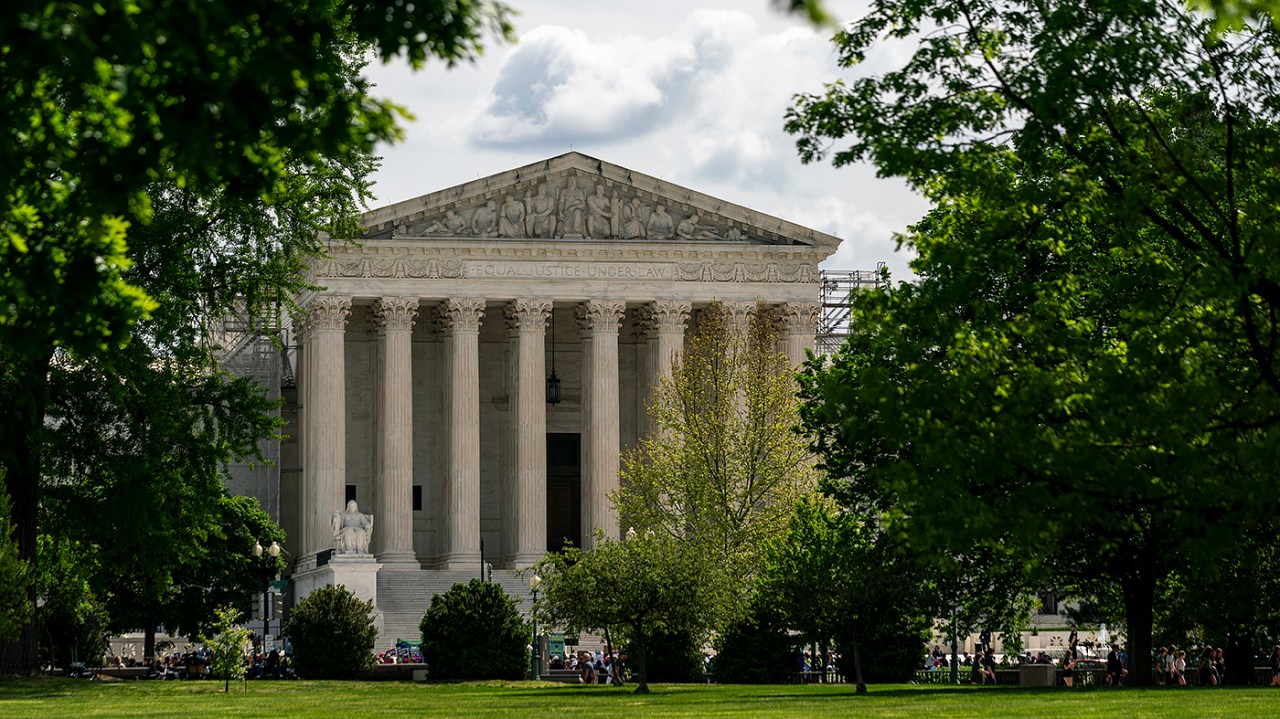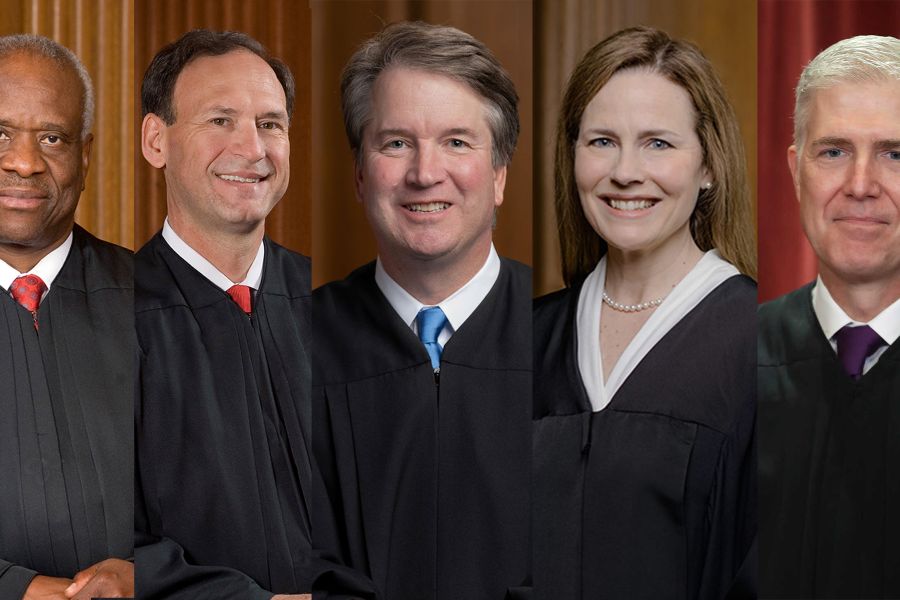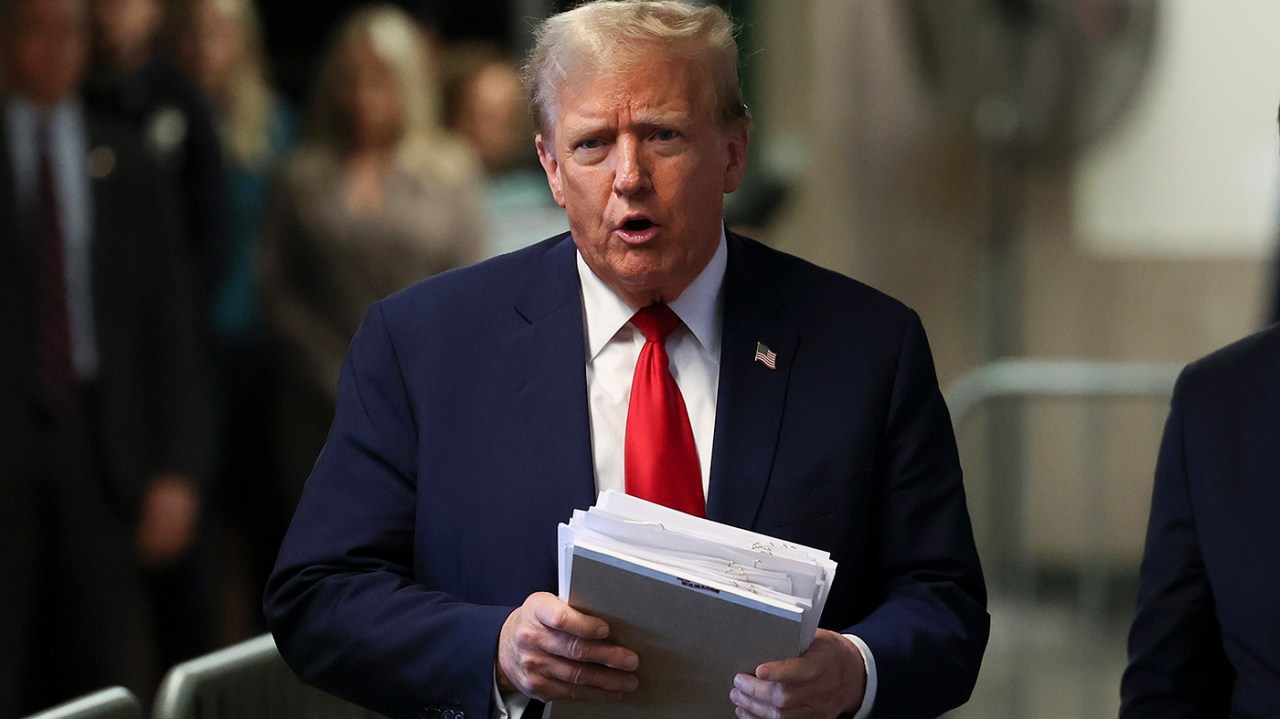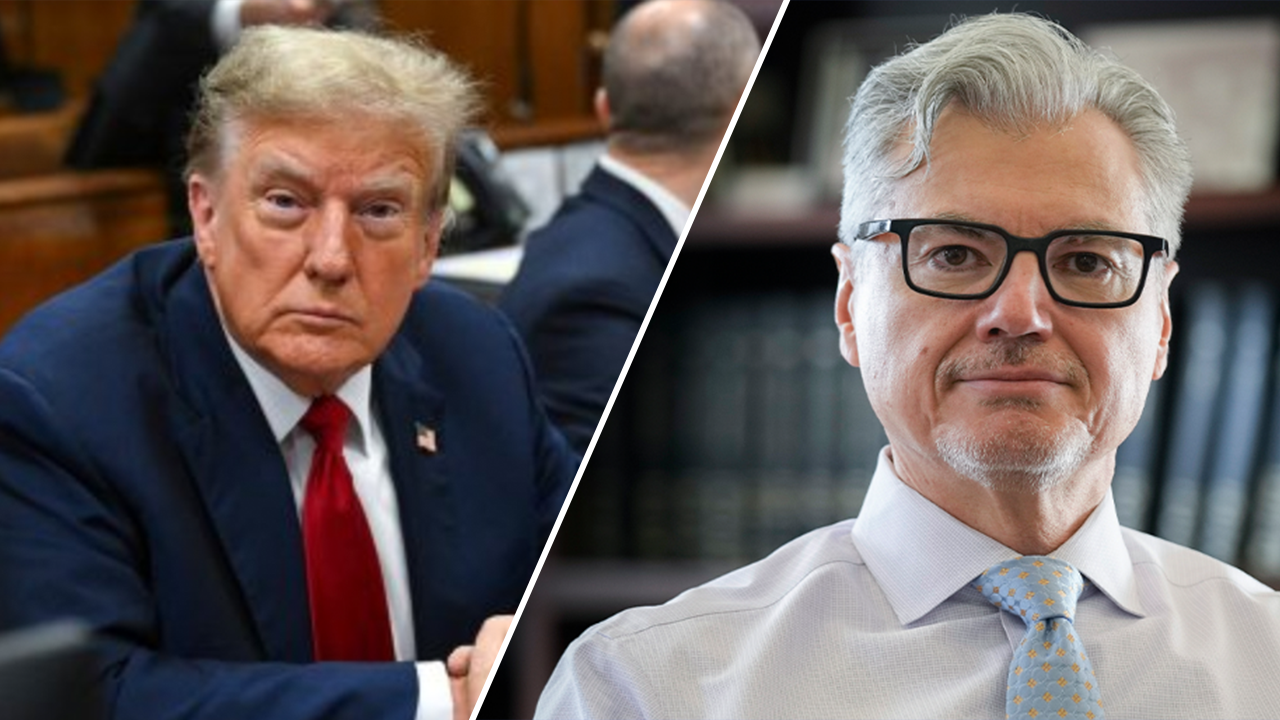WASHINGTON (AP) — The nominee who could become the first Muslim American to serve as a federal appellate court judge is fighting back against characterizations of his work by law enforcement groups that are jeopardizing
his nomination. The White House and Senate are doubling down on their efforts to win over lawmakers on the fence, but it may be too late.
Adeel Mangi received law degrees from Oxford and Harvard. He works in a prestigious law firm and has secured significant legal victories. But his limited volunteer work with two outside groups has imperiled his nomination.
Some law enforcement groups have told lawmakers that Mangi’s work as an advisory board member for the
Alliance of Families for Justice is disqualifying. That’s peeling off support — not only from key Democrats but from some Republicans who have been at times willing to support
President Joe Biden’s judicial nominees.
Mangi has taken the unusual step of writing his home state senator to explain his work with the alliance. To counter the police groups in opposition, he and the White House are emphasizing that other law enforcement groups back him. The intensity of the fight underscores the high stakes as Biden and Democrats strive to shape the makeup of the federal judiciary while they have control of the White House and Senate.
The Alliance of Families for Justice provides legal assistance for people in prison and resources for their families, including counseling. Law enforcement groups have highlighted that
Kathy Boudin served as a board member for the group after serving more than two decades behind bars for her role in a fatal 1981 armored truck robbery.
The robbery resulted in the killing of a security guard and two police officers. During her time in prison, Boudin expressed remorse and worked to help inmates with AIDS. She also developed a program on parenting behind bars. She continued efforts to help the incarcerated and their families after her parole. Law enforcement groups in New York were incensed at her release and the state’s governor at the time voiced his opposition.
The National Association of Police Organizations said Mangi’s work with the group “shows an anti-victim and anti-police bias that would certainly cloud his decision-making as a judge.” The National Sheriffs’ Association also voiced “united opposition” to his nomination.
Three Democrats have come out against Mangi’s confirmation: Sen. Joe Manchin of West Virginia and Sens. Jacky Rosen and Catherine Cortez Masto, both of Nevada. The Nevada senators specifically cited law enforcement opposition in their reasoning. Their stance means Mangi will almost certainly need the support of some Republicans to be confirmed, and there are scant signs of such support.
Democrats aren’t giving up. Sen. Cory Booker of New Jersey said “there are conversations going on on both sides of the aisle” about the nomination.
Mangi forcefully denied that he has an anti-police bias in the letter he wrote Booker, saying “any suggestion that I have sympathy for attacks on law enforcement is shocking and false.” He said the advisory board he was invited to serve on at the Alliance of Families for Justice has never even met.
He was invited to serve on that board based on his leading a pro bono lawsuit related to the death of a mentally ill, black inmate at Sullivan Correctional Facility in New York. That lawsuit led to a historic settlement that included a requirement for cameras and microphones throughout the prison, which he said increased safety for corrections officers. He said he did not litigate any more cases based on referrals from the group.
He also made clear the advocacy group has an entirely separate board of directors responsible for oversight and governance. He never had any role with the governing board. As to Boudin, he does not recall meeting her, and to the extent there was a fellowship in her name, he was not involved.
Mangi noted that some law enforcement groups are backing him, including the Hispanic American Law Enforcement Association and the Muslim American Law Enforcement Association. The International Law Enforcement Officers Association urged the Senate to swiftly confirm Mangi, saying “his record clearly demonstrates his respect for the rule of law and the vital role of law enforcement in promoting public safety.”
In recent days, senior White House officials, including chief of staff Jeff Zients, have sought to rescue Mangi’s nomination. They’ve called senators to stress his legal credentials and to decry what the administration characterizes as smears.
“Some Senate Republicans and their extreme allies are relentlessly smearing Adeel Mangi with baseless accusations that he is anti-police,” Zients said. “That could not be further from the truth and the close to a dozen law enforcement organizations that have endorsed him agree. The Senate must confirm Mr. Mangi without further delay.”
Mangi’s nomination has also generated criticism from some Jewish groups, who are highlighting his past affiliation with the
Center for Security, Race and Rights at Rutgers University. The center engages in research and education on policies that adversely impact America’s Muslim, Arab and South Asian communities.
Mangi served on an advisory board for about four years until mid-2023. He said his work was limited to participating in four meetings over four years that were focused on academic research.
Republicans have looked to associate him with remarks from others at the center that they view as antisemitic. He was asked about numerous speakers the center has hosted and whether he agreed with their statements.
Mangi said he should not be held accountable for statements made by others at events he was unaware of until senators brought it up at his confirmation hearing.
The Anti-Defamation League has defended Mangi, saying he was subjected to aggressive questioning unrelated to his professional expertise. The ADL is considered a leader in efforts to fight antisemitism.
“Just as associating Jewish American with certain views or beliefs regarding Israeli government actions would be deemed antisemitic, berating the first American Muslim federal appellate judicial nominee with endless questions that appear to have been motivated by bias toward his religion is profoundly wrong,” the ADL said in a statement.
The Senate Judiciary Committee advanced Mangi’s nomination in January on a party-line vote of 11-10. But he has clearly lost ground since then. Supporters say he has been treated unfairly because of his faith.
“Based on his record, you would think Mr. Mangi would be quickly confirmed, but I left off one fact on his resume. He is a Muslim American,” Sen. Dick Durbin, the chairman of the Senate Judiciary Committee, said Tuesday. “The treatment of this nominee before the Senate Judiciary Committee has reached a new low in many ways.”
Republican leader Mitch McConnell has been dogged in his opposition to Mangi, and has repeatedly spoken in opposition to him on the Senate floor. On Tuesday, he noted Mangi’s “almost unprecedented step” of writing to Booker to “disclaim any real knowledge of an organization on whose advisory board he sits.”
“There are only two explanations: either Mr. Mangi is so careless that he repeatedly neglected to conduct the simplest due diligence before joining advisory boards of radical groups, or he joined these groups intentionally.
“Either one makes him unfit for this lifetime appointment,” McConnell said.






